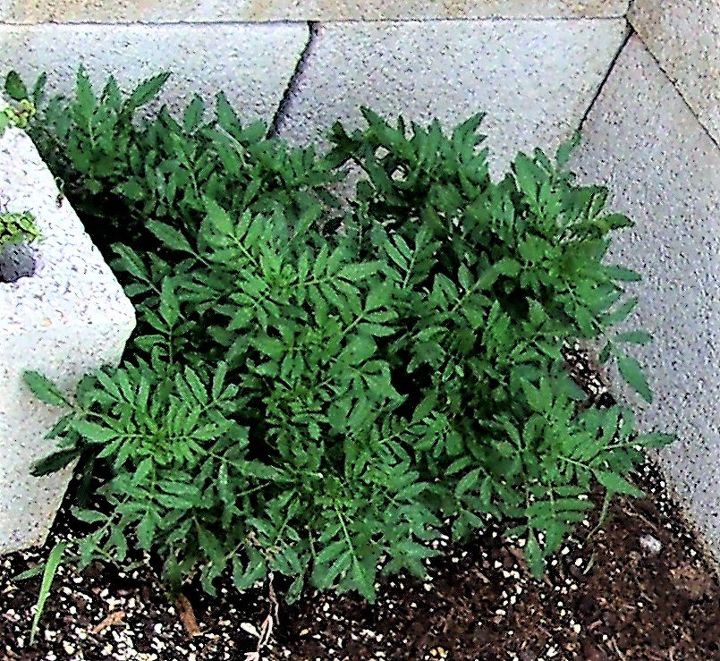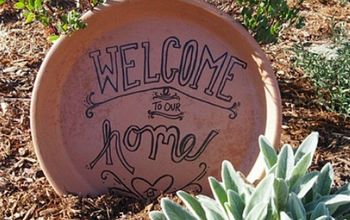How do you get rid of moss that has taken over the lawn?

Added topsoil and lime last year and re- seeded but by the end of summer, moss again.
Related Discussions
GNATS - How to get rid of them?
Somehow my house and garden got tiny gnats that killed my fuchsia plant and fly everywhere. I have tried ALL the Web recommendations - soap and oil dishes, sand in th... See more
Marigolds growing! Should I pinch the buds?
My marigold plants are growing. I heard that pinching the buds until Autumn will allow them to grow without killing the plant. Is this true?
Growing garlic
Growing our first garlic, should we wait until the leaves are drying out before we pick it? Husband picked first one today along with our first potatoes.
How to keep mice out of your garden?
Hi everyone, I have mice in my garden destroying my vegetables and I have also noticed them in the barn and shed. Please can someone tell me how to prevent them from ... See more
What's the best flower/plant to grow in Texas?
I know that opinions vary, but what's your opinion?!I have great luck w Rosemary plants. Green all year long.



Ck the ph. Contact your state Agra dept. they can test your soil and tell you specifically what to do.
Moss usually is in places that stay damp and don't get a lot of sun.
yes because lime does nothing for the moss just damages the soil, moss is from moisture and no sun--Why Eliminate the Moss At All?
Personally, I think this is the real question to ask. What is so wrong in having moss in your landscape?
Unless you live in a rainforest where the extreme and constant humidity can allow moss to grow up and over lower-growing plants, smothering them, moss usually hugs the ground and is not harmful to other plants. Instead it is “filling in the blanks”, growing where other plants won’t. In fact, moss is even beneficial. It is essentially a living, self-maintaining mulch, growing naturally as an understory in forested areas, creating a moss layer that moderates abrupt temperature changes to the roots below, helps to keep the soil from drying out too deeply, contributes to enriching the soil and reduces weed growth. It can even form a beautiful green carpet quite as beautiful as any grass lawn. And moss between paving stones? How beautiful is that!
Of course, when the moss grows on man-made structures (roofs, wall shingles, etc.), you do need to control it as it reduces their useful life, but in a garden or in a lawn… why not learn to appreciate its beauty and its benefits rather than seek to eliminate it?
Too often human beings think they know better than Mother Nature… but in my opinion, she is almost always right! hey you don't need to mow it either.You can also rake out the moss and physically remove it from the lawn. Or, the moss can be eradicated using a simple solution of water and dish soap.
The problem is that none of these options work long term. Unless you fix the real underlying problems that are preventing the grass from growing well, the moss will soon return to the lawn.Mix 2 ounces of dish soap into 1 gallon of water in a garden hand sprayer. Most growers prefer Ultra Dawn liquid dish soap. Spray the mixture on the patches of moss. Holding the spray nozzle a couple of inches from the target, drench the moss with the solution. The patches of moss will turn orange/brown in 24 hours and eventually dry-up while the surrounding grass takes over.Rake up the dead moss once it turns orange/brown. If more moss appears, repeat the treatment until it temporarily stops returning.you need to remove over grown trees,shrubs that are blocking sunlight from areas where it is growing
Hello, Lawn renovation can be an ongoing battle. Poorly draining soil, moisture and shade encourage conditions hospitable to moss growing. Unfortunately Lime can take a long time to work, its not overnight like fertilizer or a herbicides actions.
Soil tests are always recommended every few years. Most every speaker in my master gardeners class recommend this for optimal way to address your soil and turf circumstances. The soil test box and instructions can be obtained from your local cooperative extension, unless you want your lawn service to do it.
You have to have a good soil to meet your needs to growing grass or any vegetable gardening. From there you will find out the labs recommendations to promote the growing conditions to include fertilize lime ( pH adjustment) in addition to aerate and seed If grass is desired.
Our situational problematic turf situation- we found that core aeration is extremely effective to help break up the soil and get better results from seeding. Generally done in the fall aeration and overseeding with top dressing can really improve your turf’s appearance.
Additionally for the best local professional advice
I would highly suggest contacting your cooperative extension. These offices are manned by volunteer master gardeners on site there waiting to answer the communities questions that know your local situation quite well.
Master gardeners are required to volunteer back designated hours ( plus continuing education) each year to maintain MG certification -this community outreach and education is their goal. The office experts may have inside tips and specific grass seeeds uniquely recommend ped for your growing zone.
There's also email ( submit a photo) Q&A resources that have helped my concerns and questions many times. Consider googling up your local extensions office.